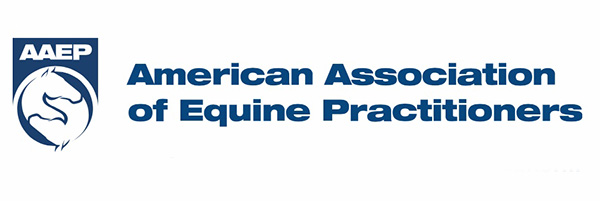AAEP Publishes Equine Parvovirus-Hepatitis Virus Guidelines

The American Association of Equine Practitioners (AAEP) has published on its website comprehensive guidelines to educate practitioners about transmission, risk factors, clinical signs and other considerations pertaining to equine parvovirus-hepatitis virus (EqPV-H), a recently discovered virus capable of causing hepatitis in infected horses.
Two distinct etiologies of EqPV-H infection are recognized: biologic transmission and non-biologic transmission. Asymptomatic infection is common; only a small percentage of infected horses will develop clinical signs of liver disease.
“Drs. Thomas Divers and Bud Tennant of Cornell University College of Veterinary Medicine discovered that this novel parvovirus was associated with the disease ‘serum sickness’ in horses who had recently been administered a parvovirus-infected biologic,” said guidelines co-author Dr. Piper Norton. “Because of their seminal research and active ongoing research, information will be learned about this virus that will assist in making biologics safer for use in horses and help with diagnosis and treatment of this disease.”
EqPV-H is a recently discovered virus and the focus of rapidly evolving research. These guidelines reflect knowledge at the time of writing. Practitioners are encouraged to seek further consultation for questions regarding clinical cases of EqPV-H.
The Equine Parvovirus-Hepatitis Virus Guidelines were authored by Linda Mittel, MSPH, DVM; Piper Norton, DVM, DACVIM; Joy Tomlinson, DVM, DACVIM; and Thomas Divers, DVM, DACVIM, DACVECC. The guidelines were reviewed and approved by the AAEP’s Infectious Disease Committee and board of directors. View the guidelines or save them to your mobile device as a PDF file for future reference at https://aaep.org/sites/default/files/2021-03/Equine_Parvovirus_Hepatitis_Virus_Control_Guidelines.pdf.
In addition to EqPV-H, AAEP guidelines for 21 other equine infectious diseases are available at https://aaep.org/guidelines/infectious-disease-control. In addition, two foreign animal disease guidelines—for African horse sickness and Glanders—can be found at https://aaep.org/infectious-disease-control/foreign-animal-disease-guidelines.
About AAEP
The American Association of Equine Practitioners, headquartered in Lexington, Ky., was founded in 1954 as a non-profit organization dedicated to the health and welfare of the horse. Currently, AAEP reaches more than 5 million horse owners through its over 9,000 members worldwide and is actively involved in ethics issues, practice management, research and continuing education in the equine veterinary profession and horse industry.










